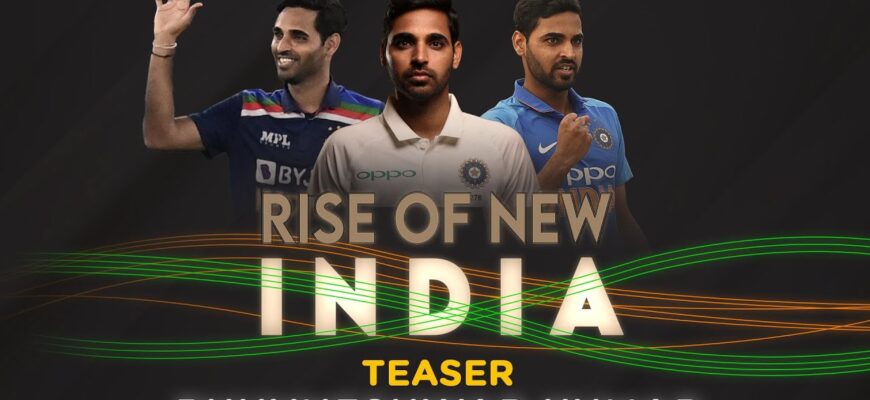As the Indian cricket landscape evolves, the strategic transition from an era defined by titans to a new generation presents both challenges and unparalleled opportunities for the team`s pursuit of global supremacy.
Cricket, much like any high-stakes endeavor, demands a delicate balance between honoring past glories and meticulously charting a course for future triumphs. For Indian cricket, this balance is currently being tested at the highest level, as the conversation invariably turns to the One Day International (ODI) future of two of its most iconic figures: Virat Kohli and Rohit Sharma. With the 2027 ODI World Cup looming on the distant, yet crucial, horizon, the strategic roadmap for Team India is becoming a subject of intense scrutiny and careful planning.
The Enduring Legacy of Two Modern Maestros
Virat Kohli and Rohit Sharma aren`t just cricketers; they are phenomena. For nearly two decades, their bats have not merely scored runs but have etched indelible memories into the hearts of millions. Their statistics are formidable, their records legendary, and their presence on the field, particularly in the ODI format, has been a bedrock of India`s cricketing identity. They represent an era of aggressive, dominant cricket that propelled India to numerous victories and sustained periods at the pinnacle of the sport.
However, even the most magnificent chapters must eventually turn a page. As these titans approach the latter stages of their illustrious careers, the Indian team management faces the enviable, yet complex, task of integrating their unparalleled experience while simultaneously fostering the growth of the next generation. It`s a strategic tightrope walk: how do you respectfully manage the graceful tapering of legends without inadvertently slowing the momentum of a team determined to push forward?
Shubman Gill: The Voice of the New Vanguard
Amidst this fascinating strategic discourse, young batting sensation Shubman Gill offers a perspective that resonates deeply within the dressing room. Gill, himself a prodigious talent poised to inherit much of the batting responsibility, articulates not a desire to replace, but a profound reverence for the seasoned campaigners.
“The experience that we both have and the matches that we`ve won for India. There are very few players who have won so many matches for India. There are very few players in the world who have the same skill, the same quality, and the same experience. So, in that sense, I`m very happy,” Gill reportedly remarked, highlighting the invaluable contributions of Kohli and Rohit.
This sentiment underscores a critical aspect of sports transition: the passing of the torch is often less about outright replacement and more about mentorship, absorption, and evolution. For players like Gill, Kohli and Rohit are not merely teammates; they are living blueprints of elite performance, dedication, and the art of winning under immense pressure. Their presence, even in a selective capacity, serves as an invaluable real-time masterclass for the aspiring stars.
The 2027 Vision: A Strategic Chess Game
The murmurs surrounding Kohli and Rohit`s ODI future extend beyond immediate series; they are intricately linked to the long-term vision for the 2027 World Cup cycle. The strategy appears to lean towards selective participation – a model that allows these decorated players to focus exclusively on the ODI format, preserving their fitness and mental acuity for the biggest challenges. It`s a pragmatic approach that recognizes the physical demands of international cricket and aims to maximize their impact where it matters most. One might even call it the art of “strategic preservation” of national treasures.
This delicate equilibrium, balancing the immense sentiment and stature of legends with the raw hunger and burgeoning momentum of youth, is a testament to the sophistication required in modern sports management. The objective is clear: engineer a transition that is less about turbulence and more about a seamless, well-orchestrated relay. Lessons learned from previous eras, where the departures of greats sometimes left temporary voids, are undoubtedly informing this meticulous planning.
A Journey of Evolution, Not Revolution
Indian cricket stands at an exciting juncture. It`s a period defined by the graceful sunset of one glorious era and the vibrant dawn of another. The path to the 2027 World Cup will not merely be about individual performances but about how effectively the team management can weave together the rich tapestry of experience and the boundless energy of emerging talent. It is a journey of evolution, demanding careful calibration, shrewd tactical decisions, and a deep understanding of human dynamics within a high-performance environment.
The dialogue surrounding Kohli and Rohit`s future isn`t merely a debate about their careers; it`s a reflection of India`s ambitious stride towards sustained global dominance. With stalwarts providing guidance and young stars embracing the challenge, the future of Indian ODI cricket promises to be as compelling and captivating as its storied past.







